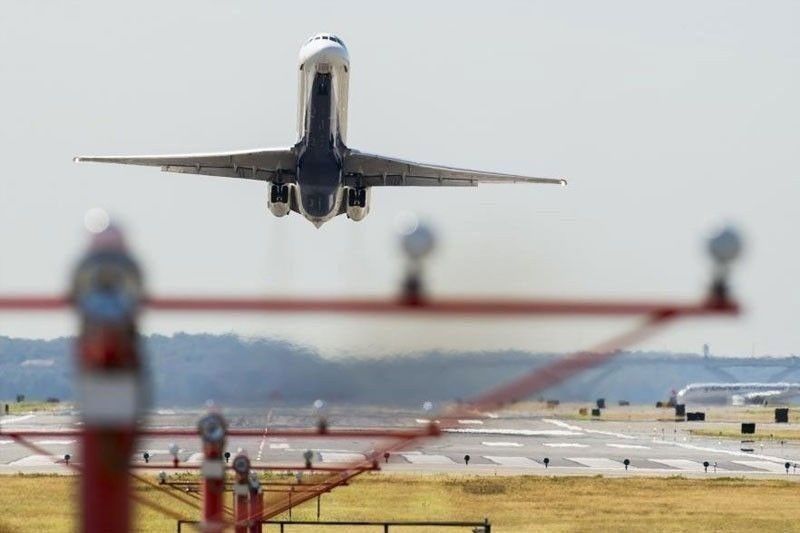Fuel surcharge kept at year-high level
Elijah Felice Rosales – The Philippine Star April 19, 2024 | 12:00am In an advisory, the Civil Aeronautics Board said the fuel surcharge will be maintained at its highest this year at Level 6 for a third straight month in May. AFP / Raul Leob MANILA, Philippines — Travelers will pay the same level of […]


Elijah Felice Rosales – The Philippine Star
April 19, 2024 | 12:00am
In an advisory, the Civil Aeronautics Board said the fuel surcharge will be maintained at its highest this year at Level 6 for a third straight month in May.
AFP / Raul Leob
MANILA, Philippines — Travelers will pay the same level of fuel surcharge for flight bookings in May, as the government is extending the current rate for a third consecutive month.
In an advisory, the Civil Aeronautics Board (CAB) said the fuel surcharge will be maintained at its highest this year at Level 6 for a third straight month in May.
Based on monitoring of the International Air Transport Association, prices of jet fuel have risen by three percent to $111.01 per barrel as of April 12, from a month ago.
As a result, CAB decided to keep the fuel surcharge at Level 6. Under this, airlines may collect a pass-on rate of P185 to P665 for domestic flights and P610.37 to P4,538.4 for international trips.
As protocol, airlines planning to impose the fuel surcharge have to submit an application to CAB before May. CAB instructed carriers transacting in foreign currency to apply an exchange rate of P55.97 to $1 in coming up with their fuel surcharge.
IATA expects prices of jet fuel to average $113.8 per barrel in 2024, translating to a global bill of $281 billion and 31 percent of operating costs.
IATA warned airlines that prices of jet fuel would remain high throughout the year, as refiners face production delays and pressures as a consequence of ongoing violence in Europe and the Middle East.
“High crude oil prices are expected to continue to be further exaggerated for airlines, as the crack spread (premium paid to refine crude oil into jet fuel) is expected to average 30 percent in 2024,” IATA said.
IATA flagged the conflict in Gaza and the war in Ukraine as some of the uncertainties hounding the supply of jet fuel. The group cautioned that any escalation in these geopolitical tensions would only worsen the price situation.
In spite of this, the largest airlines in the Philippines are confident that the aviation industry will sustain its post-pandemic recovery this year. For instance, Philippine Airlines (PAL) is allocating $450 million for its capital expenditures as it embarks on a refurbishment program to enhance its fleet.
Also, Cebu Pacific is spending P50 billion mostly for aircraft deliveries, pushing on with efforts to expand flight network and volume.
Both PAL and Cebu Pacific saw their fuel consumption go up in 2023, reflecting the resurgence in flight activities in the aftermath of the pandemic.














